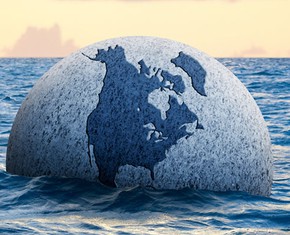The views expressed in our content reflect individual perspectives and do not represent the authoritative views of the Baha'i Faith.
Once we’ve categorized and labeled someone — telling ourselves that all atheists, or all theists or all Blacks or all Muslims or all Jews etc. are this way or that way — we’ve essentially dismissed them.
When we engage in this kind of labeling it becomes easy not to deal with people as individuals, but rather as religious individuals, or Black individuals, or liberal or conservative or whatever label/prejudice we apply.
The moment we pop someone into a category or apply a profile to them, we establish prejudicial expectations for their behavior and thoughts, and filter what they say and do through that expectation. This makes it virtually impossible to see the real person behind the category.
RELATED: Atheists and Believers: We’re All on a Path Together
Why? Because we simply dismiss any information that does not fit our expectation by passing it through the filter and redefining it. The writings of the Baha’i Faith specifically counsel humanity to not only avoid this labeling, but to take a different view of those we may disagree with. In his mystical book The Hidden Words, Baha’u’llah wrote : “O Son of Man! Deny not My servant should he ask anything from thee, for his face is My face; be then abashed before Me.”
In the dialogue I held with one particular correspondent, Steve, the original question was whether there was anything good about faith or religion that we should preserve as we aimed to get rid of destructive dogma. When I came up with a long list of positives about religion, Steve immediately set about psychoanalyzing me. He claimed that my perception that there was anything positive about religion was the result of my peculiar psychology — my “religious mindset” — which was, he claimed, common to all religious “types.”
When I called his attention to the fact that we’d gone off into the weeds, he agreed to get back to the original question – but returned immediately to my “pathology.” He explained to me why I thought the excesses committed in the name of faith were actually the result of human greed and thirst for power: I was “escamoting”. (No, this has nothing to do with the Inuit population of Alaska, but is rather a French term that means I was dodging facts). In this case, he maintained, I was escamoting the “fact” that religion made good people do bad things.
I’ve written about this idea elsewhere, so I won’t speak to it here, but I thought it an interesting twist on “the devil made me do it.” It seemed to me a nifty way to excuse human beings for the things that human beings do — with or without religion. Human beings don’t do bad things for human reasons, Steve seemed to be saying — instead, religion forces them to do bad things that they never would have thought of doing otherwise.
Seriously, isn’t it “escamoting” to attribute to the outside influence of religion and God what human beings do in every single facet of their lives? Is this logical when we exhibit the same lust for power and control and self-aggrandizement in our personal relationships, in gender relations, race relations, in the workplace, in national and international politics, whether we profess a religious belief or not?
The only thing that stuns me from time to time is that religion isn’t more proof of the manipulation to which we subject everything else. I look at the KKK and wonder how in the name of God (literally) they could justify the destruction of a Black church or their hatred of other human beings, and yet identify as Christians.
RELATED: Is Promoting Racial Unity a Spiritual Responsibility?
Christ observed that in the latter days, his followers would be judged by the words he spoke to them. I’d always wondered what he meant by that; now I believe he meant simply that believers would be judged by how well they obeyed those words. By Christ’s criteria – “by their fruits ye shall know them” – were they figs or thistles?
I asked Steve to consider the sidestep appeal to science in the insistence that Blacks and Indigenous Americans weren’t fully human, or the idea that this trumped the teachings of Christ. There are few things more a betrayal and rejection of Christ’s explicit words than the specter of sheet-clad whites burning Black churches or lynching Black people.
That virulent racism happened in spite of religion, not because of it.
If you need to be convinced of that fact, I told Steve, simply look at the prescriptive teachings of religion and the example set by the original revealers of religion in contrast with such acts of intolerance, violence, and murder. Then look at how that fear of the “other” and lust for superiority over that “other” plays itself out in areas completely unconnected to religion.
Not that long ago, racism was enshrined in American legislation. The Constitution said that Black people were only a fraction of a person when it came to representation in government. They were legally less than human; they could not enter white establishments or marry white spouses, or vote, or own property in many places.
Based on that, should we chuck the US Constitution and our entire democratic system? Or should we rather live up to the apparent meaning of the words “all men are created equal” as we gain the maturity to do so?
Should we redefine either the US Constitution or scripture by our own darkest fears, deepest hatreds, and shallowest desires, or should we rather try to live up to the clearly laid out ideals? Perhaps the Baha’i teachings, as in this passage from a speech given by Abdu’l-Baha, can guide us:
Likewise, when you meet those whose opinions differ from your own, do not turn away your face from them. All are seeking truth, and there are many roads leading thereto. Truth has many aspects, but it remains always and forever one.
Do not allow difference of opinion, or diversity of thought to separate you from your fellow-men, or to be the cause of dispute, hatred and strife in your hearts. Rather, search diligently for the truth and make all men your friends.
















Comments
Sign in or create an account
Continue with Googleor